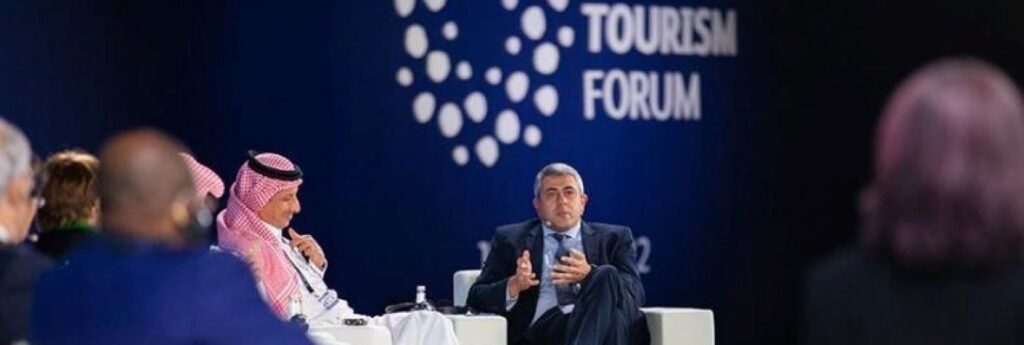Public and private leaders in travel and tourism have been called on to “think big” and unite behind the Jeddah Call to Action – a commitment to rethink tourism at every level to keep adapting to the challenges faced by the sector as a global driver for recovery.
On the back of the recently completed 116th session of its Executive Council, held in Jeddah, Saudi Arabia, the United Nations World Tourism Organization set down a marker for the future of global tourism. With the pandemic having showed the systemic vulnerabilities of the sector, the UN specialized agency called for the construction of a new and reimagined system of governance and financing with the aim of building resilience against future shocks while also making tourism more sustainable.
In Jeddah, UNWTO continued with its tradition of complementing the important deliberations of its executive council with an open discussion on the biggest challenges and opportunities for the sector. The forum “Tourism Futures – New Governance and Advocacy,” featured two distinct sessions: “Towards a New Tourism Governance” and “Raising Tourism’s Visibility” outside of the sector.
“Now is the time to think big”, said UNWTO Secretary-General Zurab Pololikashvili. Who stressed the need to “realize tourism’s unique potential to drive recovery, provide opportunity and build resilience, through better and stronger governance and focusing on jobs, training and education.”
Saudi tourism minister Ahmed Al Khateeb added: “We cannot recover backwards. Now is the time to capitalize on this heightened recognition and to position tourism as an essential pillar of transformation, development, and opportunity.”
The high-level thematic debate featured contributions from several global tourism ministers as well as high-level representatives from business, destinations, media, and communications.
Referencing the shared desire to get tourism moving again, Jerry Inzerillo, CEO of the Diriyah Gate Development Authority, noted, “We may not share the same ideology, we may not share the same theology, but we share the same biology,” highlighting a universal desire to travel and connect with other cultures.
Ruth Wright, Head of Tourism and Lifestyle Verticals at Euronews, stressed that viewers still demand certainty as the “perception amongst travellers is definitely still that travel is difficult and stressful.”
As a result, content focused on rules and regulations remains relevant, even as human-led tourism stories becomes more popular, she said, adding, “Travellers are yearning to get back to the day when travel was fun, carefree, and full of unexpected surprises.”
With the discussions emphasizing the importance of taking a whole-government approach to tourism policy, with finance and interior ministries also part of the sector’s governance, Secretary-General Pololikashvili urged participants and UNWTO Executive Council members to advance the conference agenda for positive change.
The Jeddah Call to Action recognizes the vital need for more and better tourism governance, with targeted investments and a focus on building resilience, advancing sustainability, and expanding education and training. It forms part of UNWTO’s wider work ensuring the recognition of tourism reflects the sector’s unique social and economic importance, including through making it a key part of the work of the United Nations and securing the cooperation of governments, international organizations, and financial institutions.

